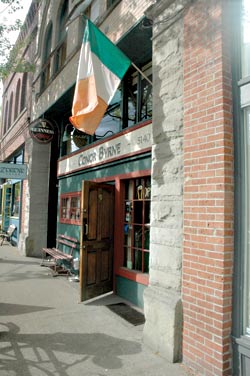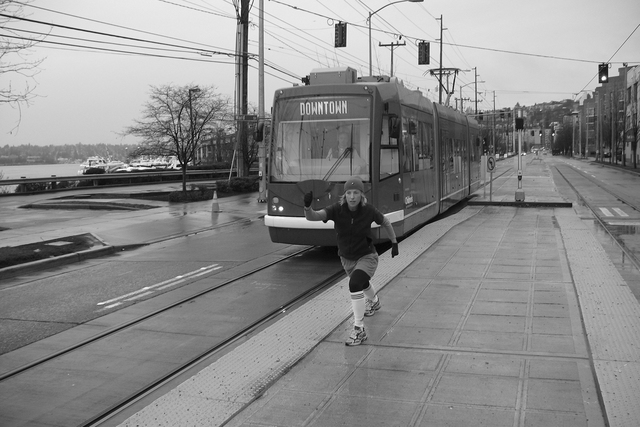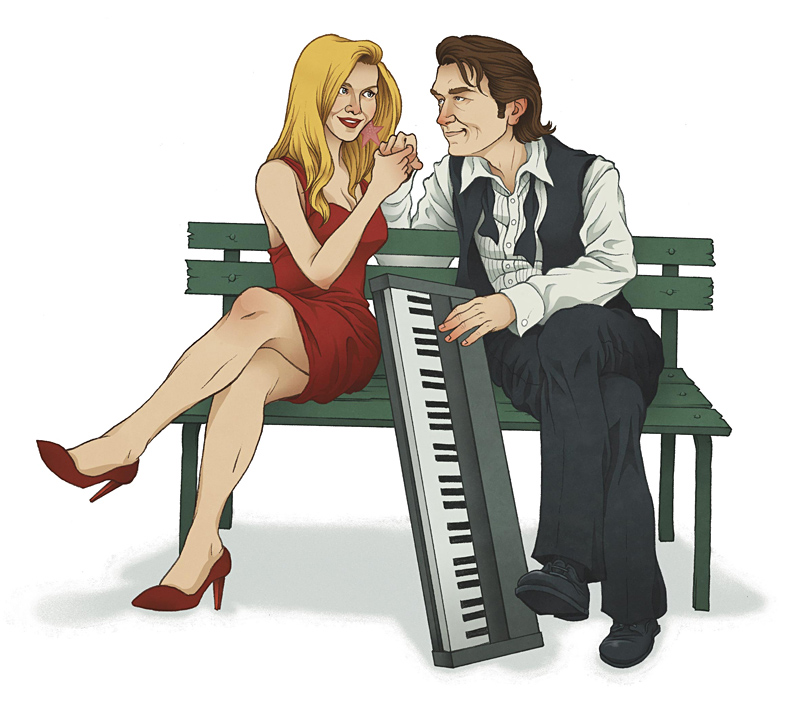When Conor and Dondi Byrne sold their Irish pub, Conor Byrne, to Kathleen Kinder in 2001, they sought to make sure their 100-year-old Ballard watering hole (known until 1993 as the Owl Cafe) would stay wet. So the Byrnes—who, at the time, also owned the building—drew up Kinder’s lease to specify that the space be used for no other purpose than a “tavern/restaurant.”
At the time, the pub served only beer and wine, but “we were always trying to figure out a way to get liquor in there,” says Byrne. “When we sold it to Kathleen, we told her, ‘As soon as [the Liquor Board] loosens up, serve liquor.'”
Now that the board has, Kinder has: On March 1, Conor Byrne’s application for a “Restaurant—Spirits, Beer, and Wine” license was granted without objection. But her current landlords, John Casey and his celebrity chef wife, Kathy Casey (a Seattle Times columnist), who bought the building in 2003, object mightily.
On May 11, the Caseys’ attorney, Evan Loeffler, served Conor Byrne’s staff with a “notice to cure lease defaults or vacate premises” within 10 days. Herein, the Caseys, who opened Kathy Casey Food Studios in 1999 in a building they own two doors down and who plan to open a flagship Dish D’Lish outpost next to Conor Byrne’s this summer, argue that the “tavern/restaurant” usage in the lease does not allow for hard liquor.
Kinder maintains that her lease does not specify any such prohibition and is ignoring the notice.
“They’re twisting the language,” seconds Dondi Byrne. “The reason we chose ‘restaurant’ was because, at that time, the only way you could serve liquor was if you were a restaurant.”
But as a stack of legal correspondence between the Caseys and Kinder attests, the hard-booze angle is just the latest in a years-long effort by the Caseys to hector the pub into submission.
According to a detailed written log provided by Kinder, the spat picked up steam in 2002, around the time that the Byrnes rejected the Caseys’ offer to buy the building in favor of a bid from investor/philanthropist Ken Alhadeff’s family. The Alhadeffs took possession, and at that point, the Caseys began filing noise complaints against Conor Byrne, which hosts live music several nights a week. But the Caseys, according to a city Department of Planning & Development file, were subsequently found to have been dwelling illegally in an apartment within the Food Studios during the period in which they leveled the bulk of their complaints, an indiscretion that came to light well after Assistant City Attorney Ed McKenna made multiple face-to-face appeals to Kinder to keep it down.
When asked if he would have acted differently had he known the Caseys didn’t have a residential permit, McKenna responds: “Quite possibly.”
The squawking ceased only after the Alhadeffs retained former City Attorney Mark Sidran to convince the Caseys that complaining about noise in a nonresidential area was a fruitless approach.
“You could put housing in a commercial zone, but there’s no 10-decibel reduction at night like there would be in a residential zone,” says DPD Noise Abatement Coordinator David George.
In late 2003, the Caseys made the Alhadeffs, whom Kinder describes as “outstanding” landlords, an unsolicited offer for the building that was $100,000 more than what the family paid just one year earlier. The Alhadeffs accepted, furthering what a former business associate of the Caseys, who spoke on condition of anonymity, says was the couple’s master plan to collar Conor Byrne’s space for themselves.
“They wanted it eventually for themselves,” says the associate. “Why wouldn’t they, considering the business they are involved with?”
However, Kinder’s lease doesn’t expire until August 2006—and she holds two five-year options on the property, effectively tying the Caseys’ hands until 2016 unless they can establish that Kinder is in default.
To that end, in a letter dated Jan. 18, 2005, the Caseys’ attorney at the time, Greg Lawless, informed Kinder: “John Casey felt it was advisable that the establishment not use candles given the wood and carpet flooring, the fact that people are drinking on site and that alcoholic beverages are present…insurance premiums most likely will rise as a result of the candles.”
In response, Kinder obtained a candle permit from the Seattle Fire Department. Undaunted, the Caseys shifted back to noise, stating that prospective tenants for one of two upstairs units were dissuaded from leasing because of the clamor downstairs, a notion disputed by Aaron Alhadeff and Zerene, a hair salon directly above Conor Byrne.
“It is a rough space to lease, with or without a bar,” recalls Alhadeff. “Having a bar downstairs does make it a bit difficult, but [the Caseys] bought the building with the bar in it. And it’s not perceived as a raucous bar.”
“I’ve been here five and a half years, and Conor’s hasn’t hurt my business at all,” says Zerene owner Valerie Zook. “In fact, it’s kind of nice being above a landmark business. We tell people who don’t know the area that we’re right above Conor Byrne’s. And if clients have to wait, I tell them to go downstairs and have a beer.”
Which brings us to the May 11 default notice, a ploy foreshadowed in a Dec. 5, 2005, letter from Lawless to Kinder’s attorney, Lana Floyd, sent shortly after Kinder applied for a full booze license: “There are enough Class H facilities on Ballard Avenue….My client sees the Class H as detrimental to the building and detrimental to the community.”
Yet this past April 7, the Caseys, who declined to comment for this story, applied for that very same spirits license (formerly known as Class H) for the aforementioned Dish D’Lish flagship. Their application is pending.









